After a whirlwind career, Watkins gives back to his alma mater
Alumnus Howard Watkins reflects on his many experiences and opportunities granted by his military career with the United States Air Force as well as his contributions to Alabama State University.
October 23, 2021
One of the most important things that any young adult needs during their maturation is guidance. With the right connections and mentorships, a student who once struggled can create a comfortable life for himself or herself. The once-average student can achieve success in their career, and the once exceptional student can attain all of that in surplus while also providing advice and guidance to the next generation.
Alabama State University alumnus Howard Watkins serves as an example that all of this is possible when innate wit combines with academic acumen and proper mentorship. A retired major of the U.S. Air Force, where he helped to establish the foundational use of the internet throughout the branch, along with many other professional titles, Howard served as a member of the ASU Board of Trustees and currently serves as a recruiter and scholarship organizer for students of the Washington D.C, Maryland, and Virginia areas.
“I feel free,” Watkins said. “I am happy for what I have accomplished and what I have done for myself. I say what I have done, but there were a lot of folks who made it happen. When I see how people have contributed to my life and a lot of other people, I have to give back in some way.”
Originating from Marengo County, Alabama, Watkins grew up about 100 miles away from the Hornet’s Nest. As the sixth child out of nine of Mary and R.C. Watkins, he was raised in a bustling yet structured household. While only three years old, Watkins’ father, unfortunately, passed away, leading to disruption in the home and the younger children missing many days of school. While he fell behind academically for a significant amount of time, it was the influence of ASU graduates, who served as at-home tutors, and who redirected his path.
“I would go to tutoring every night, and they made sure I kept up with my school work,” Watkins said, “Which actually set me aside from my other siblings in the family. So I became really good academically.”
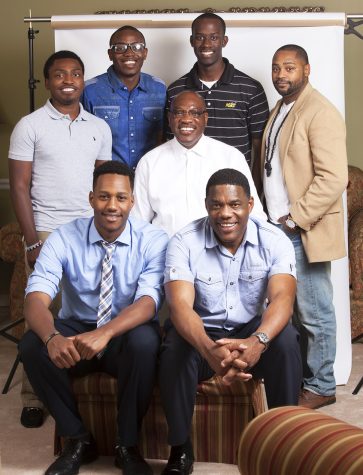
Though he began to show academic promise, his dreams failed to expand with his knowledge. Coming from a rural town with limited resources and counseling, Watkins held small- town dreams of becoming a bus driver or a sports coach. His older siblings understood that his potential exceeded the constraints of Marengo County and relocated him to Pensacola, Florida, where he could receive a more formal education.
At Pensacola High School, Watkins took part in a number of organizations. He was a member of the Key Club, Mu Alpha Theta, Marching and Symphonic Band, Junior Reserve Officer Training Corps, National Honor Society, and many more.
With many of these programs being predominantly filled with caucasian students, he often found himself separated from his friends of his home community. Due to his academic achievement, Watkins was placed in classes and clubs that provided resources and opportunities that his other African American classmates could not attain. While this troubled Watkins as a student, his Black friends fully supported him as they understood that the influence would carry him to success post-graduation.
“I understand now that I was privileged and blessed to have someone who would invest in me,” he said.
He graduated from high school in 1976 and decided to continue his education at Alabama State University, the university that had molded many of his family members, community members, and educators.
“Even when I moved to Florida, it was always Alabama State University where I wanted to go to school,” Watkins said. “I got accepted into ASU in early December of my senior year of high school, so I had no interest in any other school. I have always had that commitment and love for this institution.”
Once enrolled as a Hornet, he began his studies as an accounting major. He showed great talent as a student in the College of Business Administration, granting him access to the greatest minds in the department. Through his tenure with the college, he established a lasting relationship with Percy J. Vaughn, D.B.A., the dean to which COBA is named.
“He was tough out front, but when you actually got to know him, he would do anything in the world for you,” Watkins said. “He was a very proud man, and he loved to brag on his students who did well. He worked us very hard.”
It was the time spent with Vaughn that transformed Watkins into a true professional. Not only did Vaughn instruct his undergraduate students with a curriculum of the graduate level, but he also enforced professional etiquette and dress code. He emphasized the importance of collaboration and put Watkins in contact with more immediate scholars and mentors to direct his path.
“He was the type of person that would curse you out and then pray for you,” Watkins said in remembrance of Vaughn.
Considering their relationship lasted far beyond Watkins’ collegiate years, Vaughn was able to see Watkins’ maturation into one of the most successful COBA alumni. Watkins appreciates the passion that Vaughn held for the college and its students and now vows to extend that same courtesy to today’s students of ASU as a whole.
While he began as a student pursuing a degree in accounting, his career plans were quickly deferred. As a cadet of ASU’s Air Force ROTC, Watkins’ academic achievement and exemplary performance on the Drill Team rewarded him with a scholarship funded by the military. Those of the Air Force planned for him to become a pilot navigator, and therefore required him to change his major to either mathematics or computer information systems. In an effort to remain a student of COBA, Watkins changed his major to computer information systems.
Along with ROTC, he also worked a job in sales at Sears, and in the special collections section of the Levi Watkins Resource Center.He was a member of the Arnold Air Society, and pledged Kappa Alpha Psi Fraternity, Inc. by way of the Beta Zeta Chapter in 1978. He holds his pledge journey dearly as he considers it not only a highlight of his undergraduate years but also a pivotal moment in his life.
“I think that was the turning point because being accepted provides a wonderful service to students,” Watkins said. “It was an introduction to a lot of professional men.”
With notable figures of his upbringing being members of Kappa Alpha Psi, it was important to Watkins that he followed their lead. In order to cross, he participated in the “Men in Kappa” Club, a preparatory program designed to train and educate prospective pledgees on all things of Kappa. Of the 105 students of Men in Kappa, only about 90 made it to the interview stage. Watkins remembers the interview to be not only an invigorating moment for himself but also a highly anticipated event on campus.
“There was a line of girls outside of the doors on both sides,” he said. “It was almost like, as we walked out, that they were attacking us! They were so glad that we had been interviewed.”
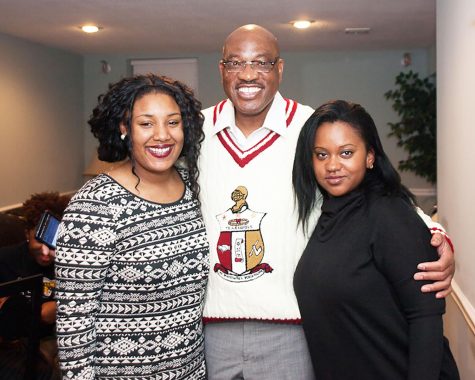
A week later, he received his acceptance letter, and therefore became a member of a brotherhood that would provide community, fellowship, and support for decades to come.
He graduated in 1980 with a bachelor’s degree in business administration with a concentration in computer information systems and reported to active duty service in the United States Air Force as a second lieutenant within 30 days.
Watkins was assigned to Langley Air Force Base in Hampton, Virginia. He served as the intelligence systems project manager and computer resource manager, working with project management and data augmentation. Even though it was his first assignment, his high merit granted him TS/SCI clearance, also known as top secret/sensitive compartmentalized information, a status that would remain even past his retirement. Though it was a great amount of responsibility, he remembers the transition from cadet to lieutenant to be a seamless one.
“It had to do with my willingness to work hard, learn everything that I could, and seek out opportunities within my profession for training,” Watkins said.
At this assignment, he took on any extracurricular training and certifications offered. Though he was often the only African American in the room, he saw them as opportunities for growth in the field he loved.
Watkins’ commitment to excellence did not go unnoticed, as he was recognized by a number of highly-ranked officers and mentors. The most notable was Lieutenant General Albert J. Edmonds, who served as the director of the Defense Information Systems Agency and also a member of Kappa Alpha Psi Fraternity, Inc. The two shared a professional and personal relationship, as the guidance reached much farther than solely military matters.
“He became not just a mentor, but like a father to me,” Watkins said.
In 1984, he was promoted to captain and reassigned to Maxwell-Gunter Air Force Base in Montgomery, Alabama. At this location, he covered much ground by working as the systems implementation project manager, chief of computer systems hardware branch, executive officer, and special projects manager. Responsible for implementing special programs and software in the computer systems of over 120 Air Force branches worldwide, Watkins occupied a role with many moving parts. To help him manage it all was the support of General Edmonds and a myriad of other superior figures.
Though he was aware of the impact that his mentors and their guidance had on his success, it was during this time that Watkins struggled the most with mentoring the next generation.
“I was to a point where I had earned mine, so I thought that people should earn theirs not understanding that people come from disadvantaged backgrounds, that makes it more difficult,” Watkins said.
While he now understands the importance of mentoring, he works tirelessly to make up for that lost time.
Watkins was reassigned to 262nd Communications Squadron of Boerfink, Mountaintop Kersern, Germany, in 1989. He served as the interim commander and chief of operations, where he was responsible for software development, computer and communications operations, configuration control, and integration of newly adopted software. Having a great span of responsibilities, Watkins led a team of 129 individuals to complete their goals. With such a large team of subordinates and superiors, Watkins was oftentimes the only African American in the room, which caused racial conflicts.
Working with officials who came from backgrounds of bias, Watkins was frequently subject to instances of racism. His work was often questioned for legitimacy. He was rarely thanked for his contributions and was even the butt of some jokes. Though he tried not to let the harassment hinder his work, he began to experience physical ailments due to the stress of the situation.
“As a minority officer in a leadership position, I had people of the same rank that worked for me from the South,” Watkins said. “I ignored it, but it was all being internalized.”
To remedy the issue, he consulted General Edmonds, who then worked in Washington D.C., to send inspectors to assess the situation. Edmonds was happy to help his mentee, as he personally understood the struggles of being a minority in the military. In his usual fashion, Watkins made sure that his team excelled despite adversity. He brought in a number of ASU cadets, along with those of other schools, to provide exposure to real-world experiences and opportunities.
It was also during this period that Watkins pursued his graduate education. By receiving his master’s degree in human resource management from Troy University in 1990, he only widened his area of expertise and skill.
In 1991, he was promoted to the rank of major and then reassigned to the Defensive Information Systems Agency in Washington D.C. Within the agency, he served as the chief of global command and control system operations; chief of network operations; supported the department of defense of CONUS, Europe, and the Pacific; and chief of architecture guidance. Still responsible for the implementing software, such as the internet and more, Watkins worked to manage the network of unclassified information of Air Force bases worldwide.
“I was damn good at it. I really was,” he said. “I love problems, and I am a good problem solver because I always create a team of experts to keep around … Every person can bring something to the table. Everybody has a different background and ideals, but you have just got to work.”
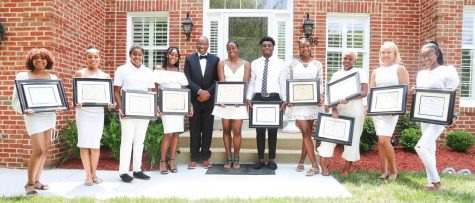
Supporting mentor Vaughn’s value of collaboration, Watkins understood not only the importance of teamwork, but also the importance of providing that team with a strong leader. From this work, they played a crucial role in the designing of the Defense Information Infrastructure, an interconnected system of computers, communication, resources, and more that allows for easier and faster information retrieval. This went on to support Vice President Al Gore’s initiative for a National Information Infrastructure.
“Now everything was at our fingertips,” Watkins said. “You can get instant information that you needed right off your telephones. Who would have thought 40 years ago that it would be like this.”
Watkins retired from the United States Air Force in 1997 after 17 years of service. While he loved his time in service, he felt that it was the right time to begin his civilian work while riding off of the success of his military work. He credits his time spent in the military for much of the success he has earned. While it not only provided specialized resources and opportunities, it also offered access to many mentors and reputable counterparts and a line of work to be proud of.
After retirement, he began working with Applied Quality Communications, a business consulting agency providing computer services to clients, one of those clients being the United States military. With this Black-owned firm, he served as a project manager, business developer, and security manager. Responsible for special projects working in weapons and transportation maintenance, digitizing information, and more, Watkins found his work to be similar to that of the military.
“It was almost the perfect introduction to the outside military life because I had so many areas under me and a really nice budget with plenty of money to spend,” he said.
Before officially retiring, Watkins held several other positions in the tech world. He worked with Booze-Allen and Hamilton, a cyber consulting agency, as a distance learning instructor. Employed by Analytic Service Inc., he served as a program manager, senior research analyst, and business developer. He also held positions with the Defensive Intelligence Agency, National Security Agency, Office of the Director of National Intelligence, and at the Pentagon.
“Some things they say could not be done, I did it,” Watkins said about his long- running and fruitful career.
Looking back on his career, he considers his biggest challenge faced was trusting those around him. As a Black man in the military, he was often put in uncomfortable situations where prejudice clouded the judgment of his counterparts. Refusing to accept this treatment, Watkins made it clear to all that his respectability as a man and the credibility of his work is not dependent on his race.
“When you are in charge, you cannot tolerate that,” he said. “I let leadership know that I would never apologize for my color or for anyone working under me that is Black.”
He believes the most gratifying aspect of his work was his ability to gain exposure, travel to various destinations and discover new ideas.
“I got to work with some of the smartest people in the world,” he said. “It has been fun.”
Watkins is most proud of the lasting impact that his work has left on the technological proceedings of the Air Force and other previous places of employment. With many of his programs serving as the blueprint for the software currently used today, he now understands the importance of his decades of service.
“I left a litany of things in terms of the networks and in terms of laying a foundation,” he said. “Nobody can say that I did not provide them the best of anything they needed.”
Aside from his professional work, Watkins is also reputable due to his humanitarian work. His establishment of various college preparatory and scholarship programs for grade school students in the Washington, D.C., Maryland, and Virginia areas, have allowed him to become a major asset and advocate for Hornet Nation.
Originating from his tenure as president of the Washington D.C. chapter of the ASU National Alumni Association, a position he held for 14 years, Watkins would oversee the distribution of scholarships to Hornet Students. This community service was then extended to his church. As the director of the College Ministry at Mt. Ennon Baptist Church, located in Clinton, Maryland, he brought a business-driven mind to the ministry cause. Using the reputation of the megachurch, Watkins assisted in the resolution of any conflicts between students and their respective universities, funded scholarships, and gathered over 60 well-esteemed professionals to serve as volunteer mentors.
“I do believe that God gives people ministry and then blesses that ministry,” he said.
His near decade as the leader of the College Ministry inspired his founding of the Washington Area Alabama State University Parents’ Dynamic Connection (WAASUPDC), which works to enhance communication between the university and community, support university traditions, increase prospective ASU student recruitment, promote alumni events, and more.
He also took part in creating the Alabama State University Enrichment Program, which educates prospective students on university history, provides professional workshops, encourages relationships between alumni and students, scholarships, and more.
“I sit and dream and envision how we can improve alumni giving,” he said. “It’s R1 and R2, reach one and recruit one. As an ASU alumni, I need you to go reach a student and then recruit that student … It is a team effort.”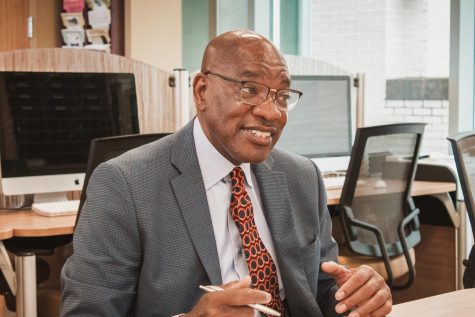
With Watkins now understanding the importance of mentorship, he executes these initiatives as a way to pour back into the university and community that initially poured into him. From his work, he has not only expanded ASU’s reach but has also provided guidance, structure, and over $250,000 worth of scholarships to students.
“When someone mentors, it is because there is something there, a little something extra, that they can share that a student can not get from the traditional education system,” Watkins said. “You only have four years to get what you want out of your foundation for education to cultivate yourself to be where you want to be in life.”
Allowing him to be such a force within his profession and community is his interpretation of the Pareto Principle, most commonly known as the 80/20 rule. Watkins argues that only 20% of anything can be perfect, while the other 80% leaves room for improvement.
“By staying positive on that 80%, then we know the weaknesses and the challenges,” he said. “When I talk to people in my work center I need to know about all of the good things you are doing along with the challenges you are having so that we can all know what to work on together, as a team.”
Now of service to the university that provided the foundation for his colorful career, he hopes to provide today’s Hornets with an incomparable collegiate experience.
In his personal life, Watkins is the proud uncle to a myriad of nieces and nephews. Along with the biological bunch, he has also theoretically taken in the children of his fraternity brothers, close friends, and even some of his ASU recruits. Known for his sternness, they regard him with great respect and regard.
“They send them to me because they know I do not play,” he said.
When not working, he enjoys spending time traveling, exercising, and supporting HBCU sports. This support reaches deeper within ASU as he has recruited student-athletes for the football, tennis, track and field, and baseball teams.
Following his humanitarian efforts, Watkins offers guidance to many of the members of Hornet Nation. He advises that students who plan to go into the realm of technology get as many certifications as possible, as quickly as possible.
“Certifications trump graduate degrees,” he said. “With those certifications and a technical degree, you will have everything you need.”
To students considering joining the military, he hopes to be a catalyst in the decision-making, as the military provides great opportunities and benefits that often last long after service.
For all students, Watkins emphasizes the importance of taking advantage of all resources and opportunities provided. Whether it is a certification program or a faculty offering mentorship, they can very likely set the tone for your remaining collegiate career and professional journey.
“Whatever you decide you want to do, you should be the best that you could possibly be out of it,” he said. “You have got to get more out of this than just an education.”
To all of Hornet Nation, Watkins urges to find a campaign, organization, or passion for the university to delve into. He expresses that through this university appreciation, one can develop a love that will eventually develop into school pride. From his decades of affiliation with the university, he knows that it is that love and pride which fuels the Ole Bama State Spirit that we hold so dearly.


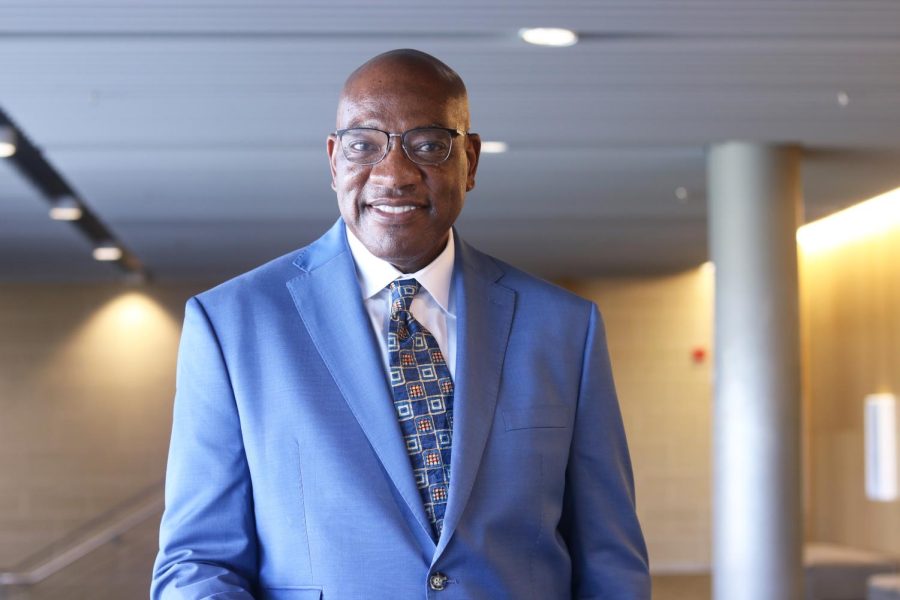





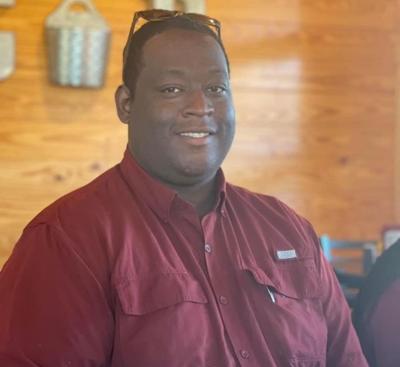

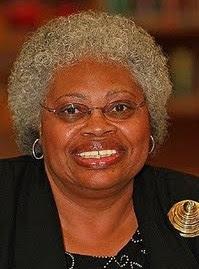
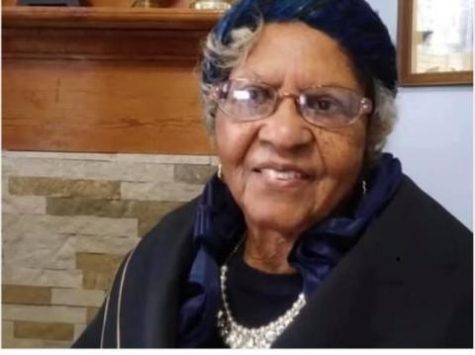
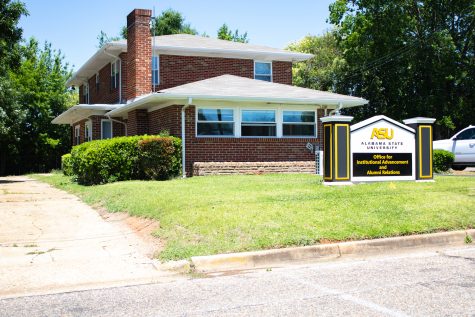

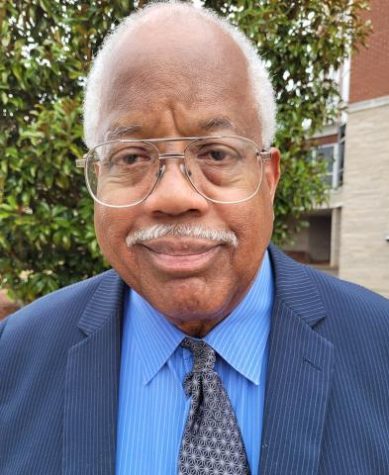
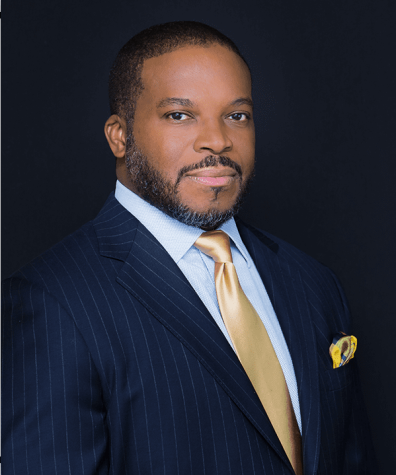
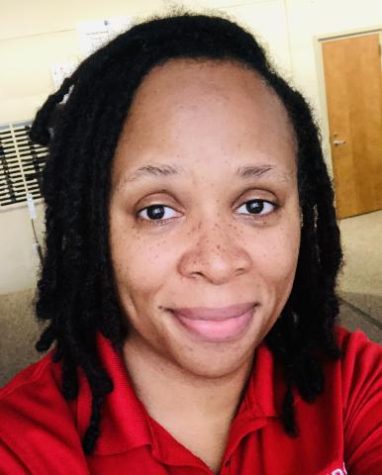
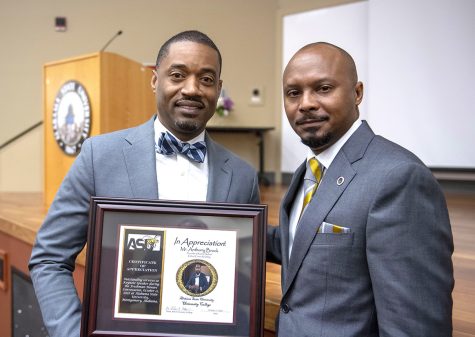
Gloria Watkins • Mar 11, 2022 at 7:04 am
Howard you are an inspiration to your family. Your life journey has not been an easy one but you kept your faith and focus on the prize. Your heart demonstrates your characters of loving-kindnes, judgement and righteousness. I thank God for all your supporters throughout your life journey as well as the writer and
everyone who contributed to this post… a job well done!!
Your sister-in-law
Gloria Watkins
Peggy Etheridge • Feb 19, 2022 at 5:54 pm
Howard, you deserve this recognition! Well done, and continue the work. God bless you! Oh, I miss your great ASU Holiday Padties!
Peggy Etheridge,
AAMU Bulldog and former neighbor
Maryann Roya) • Feb 4, 2022 at 1:45 pm
Congratulations to Howard for investing in our young people. Job well done!
Maryann Royall
Clinton, Md
Twyla Buckmon • Feb 4, 2022 at 1:07 pm
Awesome man of God and mentor to my daughter. He became a forever friend and influence in both of our lives. Congratulations are in order for everything he has done for his family, the community, and ASU.
Maurice Battle-Taylor • Jan 10, 2022 at 5:39 pm
Great Job Howard,
This is your sister of Beta Phi Phi Maurice Battle. May God continue to Bless you and your Ministry.
Brian Howard • Jan 9, 2022 at 4:28 pm
Love the article and recognition for my friend Howard Watkins. He continues to be a beacon of light and lead the way for getting students from Washington DC area.